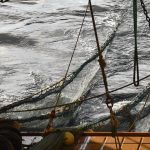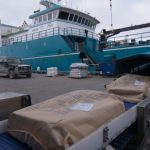In order to improve global seafood security there is strong need of sustainable fisheries and this could be done through increased aid from developed countries, says a policy paper by an international working group of 20 economists, marine scientists and seafood experts. It is fact that seafood is a significant source of protein for nearly 3 billion people and is the planet’s most highly traded food commodity, contributing to the livelihoods of more than 560 million people.
Due to absence to coordinated policy threatens global seafood supplies and so to help safeguard future supply the price of seafood has to reflect the cost of maintaining ecosystem health in the countries that capture or farm most of it, opined Martin D. Smith, lead author of the paper and associate professor of environmental economics at Duke University’s Nicholas School of the Environment.
He explained that many imports are coming from developing countries that are not necessarily well-positioned to manage their resources sustainably. He also said that each country governs its own resources well and the seafood trade contributes to worldwide economic growth and food security.
Cathy A. Roheim of the University of Rhode Island, told that issues of resource ownership and governance are at the top of the list. Concurrently aquaculture (farming seafood) has great promise for enhancing food security but is also threatened when regulations fail to protect the supporting ecosystems, says Smith.
Trade policies such as import bans and tariffs could be used to punish countries that fail to meet sustainability standards but these are rather blunt instruments. Smith believes that allocating more foreign aid for sustainable infrastructure in developing countries — provides clear advantages.








